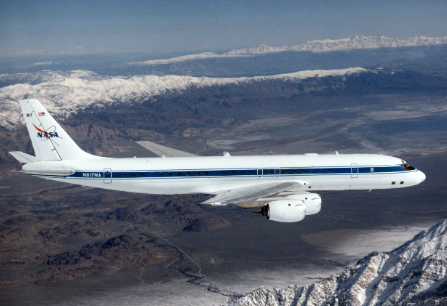What is DC-8 Flying Laboratory of NASA?
NASA has begun conducting marathon research flights across Asia in order to improve air pollution forecasting models. The flights aim to collect detailed data on air pollution sources and behavior to enhance warning systems for the public. Millions of deaths each year are linked to air pollution.
The flights involve NASA’s DC-8 flying laboratory, the world’s largest aircraft designed for airborne science missions. Starting in the Philippines, the DC-8 is flying for up to 8 hours at a time, sometimes as low as 15 meters above the ground, to collect air pollution particles for analysis.
Significance
According to NASA’s Barry Lefer, the research flights can “provide direct measurements of how much pollution is coming from different sources.” This data is critical for the air quality forecasting models that inform pollution warnings and policies. Currently these models rely on limited ground and satellite data. The DC-8 can help fill gaps and improve satellite data interpretation. By combining data from air, ground, and space, the project can lead to more accurate forecasting models.
Research Flights
The DC-8 research flights have so far been conducted in figure-eight patterns over the most densely populated areas of the Philippines, including the capital region. The jet flies as low as 15 meters above the ground to collect detailed pollution data.
A smaller NASA Gulfstream jet creates three-dimensional pollution distribution maps to complement the DC-8 data. Over the coming weeks, the aircraft will conduct similar flights over South Korea, Malaysia, and Thailand.
Asia Impact
The ASIA-AQ collaboration involves NASA and Asian governments in a region with very high air pollution death rates. About one-third of global air pollution deaths occur in Asia. In the Philippines, the rate is 100 deaths per 100,000 people.
The flight results will be publicly shared after one year. By enhancing pollution forecasting, the project aims to reduce the heavy health impacts from air pollution across Asia.
Month: Current Affairs - February, 2024
Category: Environment Current Affairs








